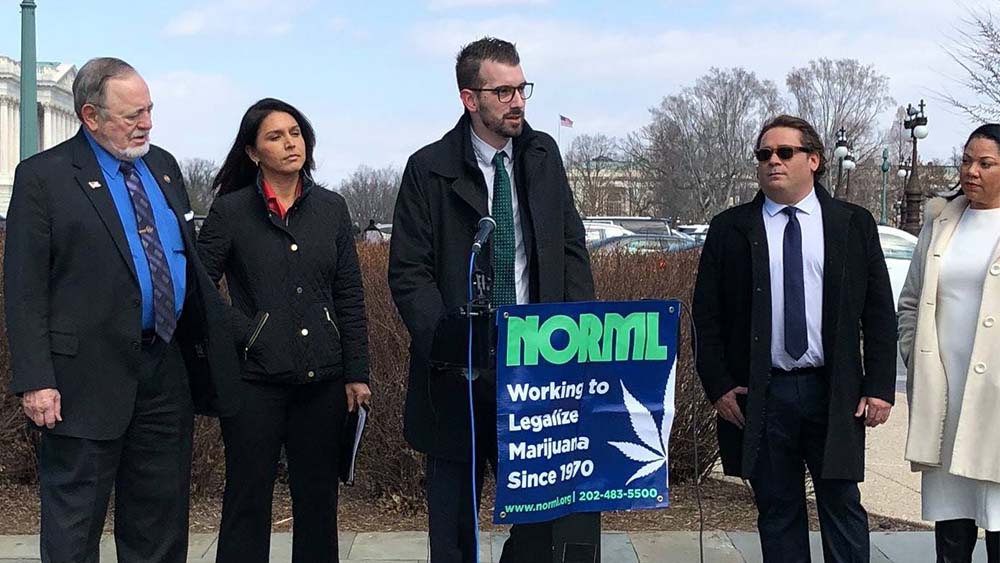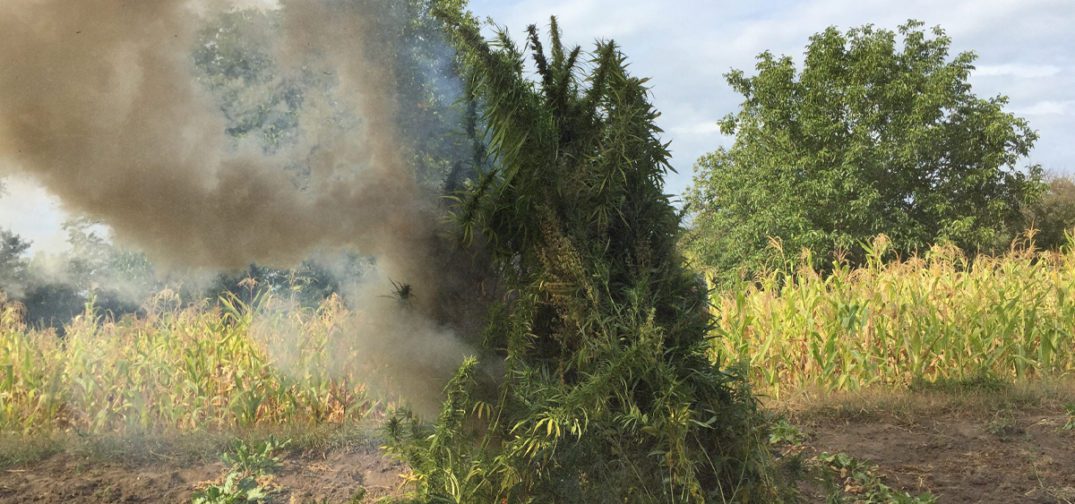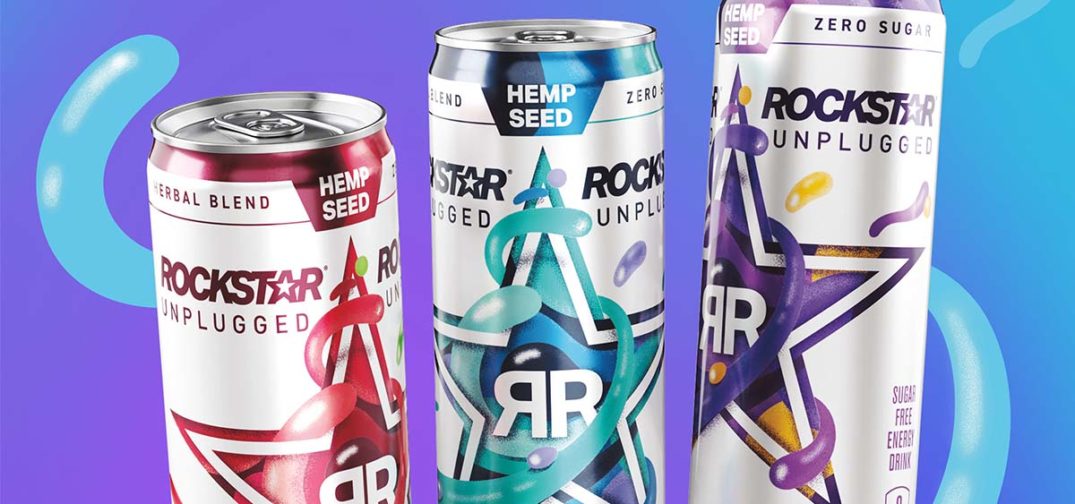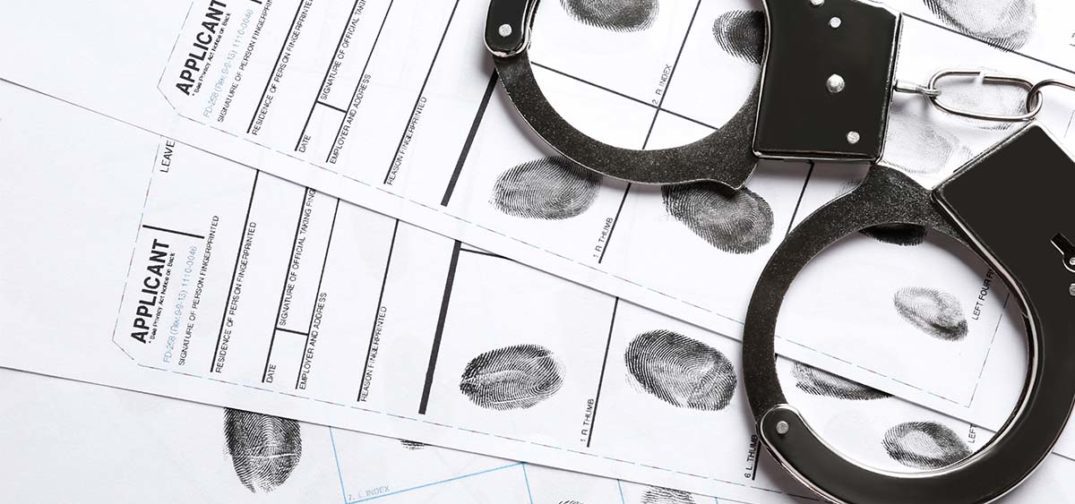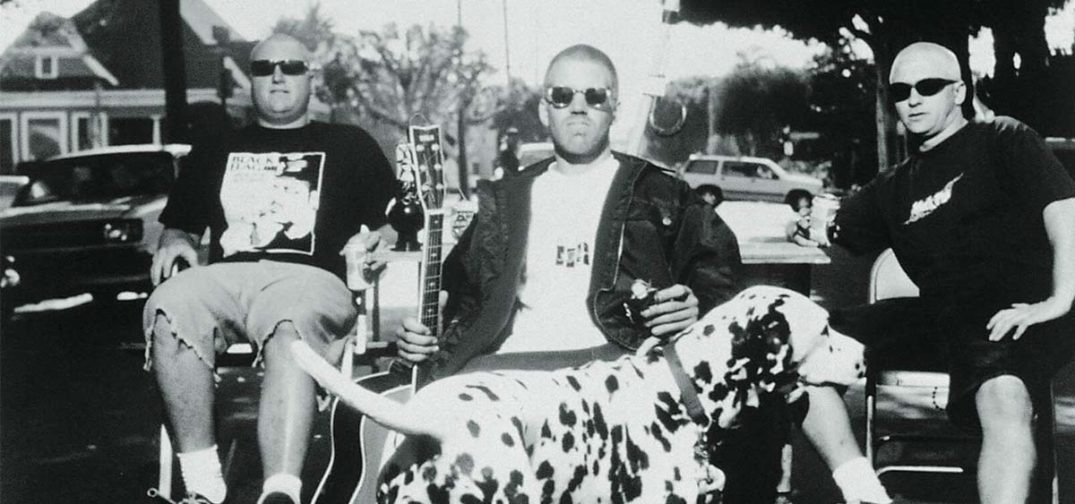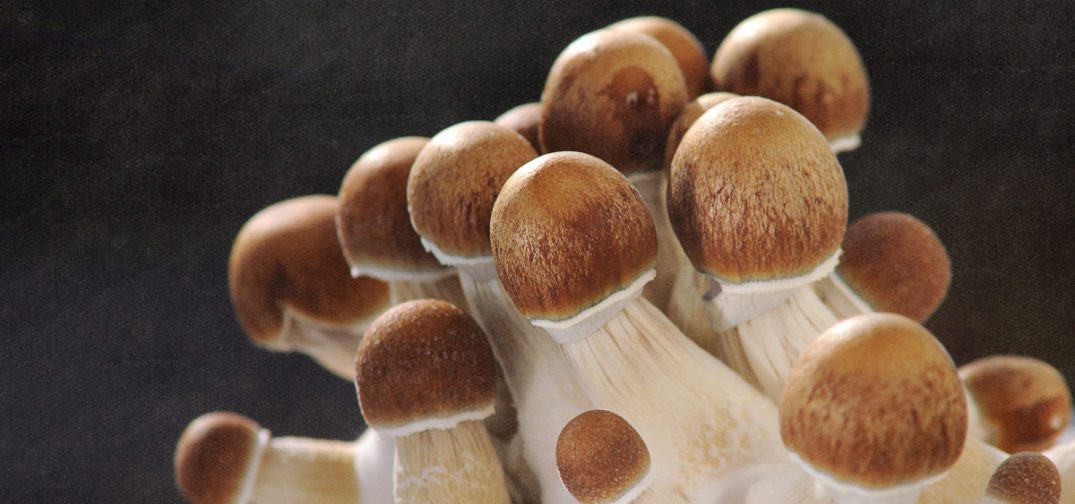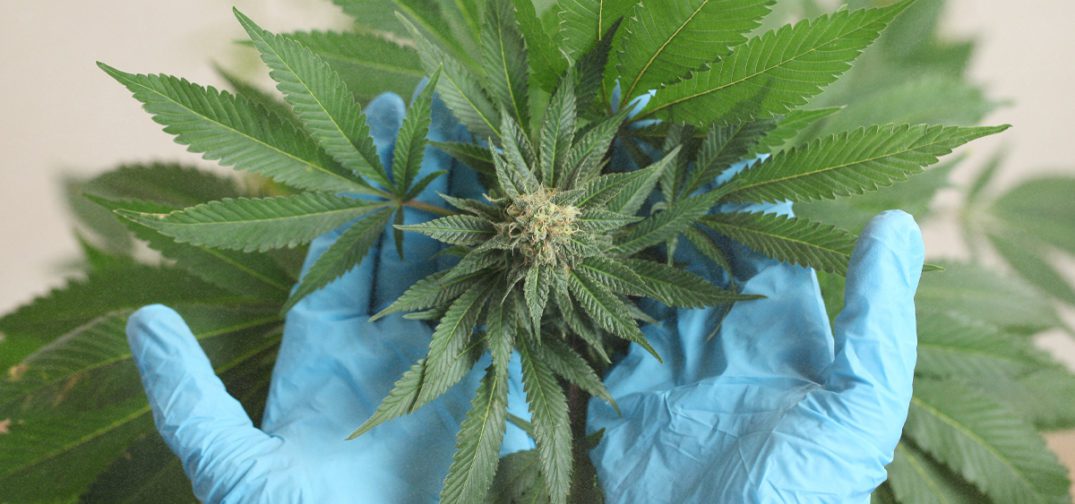Between steep compliance requirements and a misplaced stigma still lingering from the prohibition era, the cannabis industry is inherently intertwined with the law. In this interview, we ask New York City lawyer David C. Holland about his efforts to forward legalization and clemency efforts, the upcoming launch of New York’s adult-use cannabis market, the important role of cannabis advocacy and lobbyist groups, and more!
David serves as the Executive and Legal Director of Empire State NORML, is Co-Founder and President of NYC Cannabis Industry Association (NYCCIA), Co-Founder and Vice President of the Hudson Valley Cannabis Industry Association (HVCIA), and Legal Advisor for the Last Prisoner Project.
Read the full interview below:
Ganjapreneur: What inspired you to become a lawyer?
David C. Holland: As far back as I can remember, I have always been intrigued by the interplay between freedom of speech and the criminal justice system. Reading about the trial of Socrates for his teachings and the criminal consequences for questioning the beliefs and values of society fascinated me. We have seen that theme play out in religious contexts and even in the modern day, where media reporters in the United States can run articles that may lead to interactions with the criminal justice system.
My fascination started as a 7-year-old when my family was involved in a medical exchange program and moved to Moscow during the height of the “Cold War” with the Soviet Union in 1972-73. This exchange program was seen as a way to build cultural relations without diplomatic affiliation. At that time, we were the only westerners living behind the Iron Curtain with no diplomatic affiliation of any kind. All five of us kids were enrolled in Soviet schools and became part of the community.
The scientific world and hospital systems of the Soviet Union were decades behind the U.S., which in some part was due to censorship of prevailing research from reaching the Soviet scientific world. I remember overhearing my parents express fascination and exasperation about some of the impact of censorship on the scientific community. I later learned that they would often entertain whispered questions from the Soviet scientists about democracy in the United States and what freedom of thought was like in politics and science. These were dangerous questions for many Moscovites as KGB monitoring and surveillance of Soviet citizens was painfully real, and engaging in more than basic inquiries about western democracy that might challenge the rationalization of authoritarian rule could result in serious repercussions or even exile. That early experience of seeing a system where human inquiry/freedom of thought could be punished just for the potential to challenge the status quo never left me and shaped my future career as an attorney.
So, I was beyond excited at the opportunity to spend more than a decade working with High Times Magazine – the world’s Bible on cannabis cultivation and culture. Fascinating to me was the history of the magazine and the motto of the Founder, Tom Forcade, who, fearing federal efforts to eradicate the plant, said, “If you can’t overthrow the government then teach the people to overgrow it,” so that cannabis could not be eliminated from American culture. This interplay of radicalism and freedom of the press in teaching readers how to cultivate cannabis despite the prohibition under state and federal law was the elixir for me of a dream job. I got to explore and advance the legal issues of counter-culture in America and watch the role that the advocacy of many played in legalizing cannabis in the vast majority of the United States. It won’t be long now before national legalization takes place and the once counter-culture is the mainstream.
How do you assist clients in licensing, compliance, and communications with local and state municipalities?
I consult with existing operators (both from the legacy market and legalized market) and aspiring market entrants on how best to position their operation for the licensing application process. This includes doing corporate formation, business planning, branding, pitch decks for investors, equity and diversity planning, and providing comprehensive analyses of how the applying licensee’s business will uplift impacted communities and create meaningful jobs and generational wealth through the direct and ancillary ripple effect of that applicant receiving a license. My colleagues and I also engage with the municipal leaders to discuss their concerns about the implications of a licensed cannabis operator in their jurisdiction. Helping communities and their leaders overcome those concerns is an essential part of the license application process.
Why do you focus your energy on cannabis legalization and clemency?
Dostoevsky wrote, “The degree of civilization in a society can be judged by entering its prisons.” This statement has factored largely in my professional life as I have had the fortunate opportunity to work within the criminal justice system from nearly every vantage point and have come to some conclusions about it.
For decades, American prisons served as mass incarceration warehouses of cannabis prisoners despite the fact that marijuana is now legal in some form in most of the United States. Millions have been arrested and convicted for cannabis, with a large number for simple possession. In some states, 87.5% of those arrests were people of color, which is abhorrent given that Caucasians and other demographics possess and consume at roughly the same rate for the same conduct. The draconian collateral consequences of those arrests and convictions, which at one time resulted in life imprisonment, were devastating not just to the accused but also to the family members and communities from whence they came. So Dostoevsky’s yardstick to measure our civilization ought to include the lives and opportunities destroyed by cannabis prosecutions and the collapse of communities as a direct result of that over the persecution of cannabis.
Those staggering realities resulting from the war on cannabis cannot be justified by the assertion of any credible scientific foundation or evidence. That is because the prohibition of marijuana was spawned from the insidious and rabid racist and xenophobic prohibition campaigns of the 1930s designed to criminalize and eradicate the plant. Those prohibition campaigns started by Harry Anslinger and others served the economic and political interests of an elite group of Americans who greatly benefitted from the plant’s eradication.
The true motivation of the war on cannabis was best summed up by John Ehrlichman, former domestic policy advisor to Richard Nixon. In a 1996 interview with Harpers, he made clear that weaponizing marijuana prosecutions in 1970 by classifying it as a Schedule I drug under the federal Controlled Substances Act served as a means of societal and thought control. As Ehrlichman made clear, Nixon had marijuana put in Schedule I, the most restricted drug classification, to punish the counter-culture by vilifying “Black people” and “hippies” night after night on the news, arresting their leaders, breaking up their meetings, and disabling their movements. Ehrlichman concluded the interview by stating, “Did we know we were lying about the drugs? Of course, we did.”
Correspondingly, over the ensuing decades, there was a rise in the prison-industrial complex where we have warehoused criminalized cannabis prisoners for reasons far removed from science or legitimate public health and safety reasons. If our prison system is the metric by which to measure our civilization, then we are in abject poverty of humanity. Despite 38 states legalizing cannabis in some form, we still have people serving excessive and life sentences for non-violent cannabis offenses. The continued imprisonment of those is not only unfathomable; it is indefensible.
I have had the great honor of assisting John Knock and five others who were each serving at least one federal life sentence without the opportunity of parole for non-violent cannabis offenses. Through the advocacy by myself and others, each received clemency from Presidents Obama and Trump and had their sentences commuted to time served.
Until the incarceration of legions of cannabis offenders ends, I will continue to assist in the battle against this injustice. One such means is the privilege to serve as a Legal Advisor to the Last Prisoner Project, which seeks clemency and relief for prisoners who are still languishing for conduct that is now legal in most of the United States. I will also be advocating for the creation of an amnesty program for legacy operators in order to prioritize them as first entrants into the legalized marketplace. Without that, there will be a two-market system that defeats the goals of justice and equity, which are at the heart of legalization programs in New York State and elsewhere.
Why did you co-found the NYC Cannabis Industry Association (NYCCIA) and Hudson Valley Cannabis Industry Association (HVCIA)?
Some of the major issues of a legalized cannabis industry are not uniform across the state and therefore not readily addressed on a macro level. With that in mind, I co-founded the NYCCIA (NYCCIA.org) and HVCIA (HVCIA.org) to take up regional approaches to those issues.
For instance, New York City is considered the world’s largest cannabis marketplace. However, being a densely packed metropolis, it is not well disposed to cultivate enough supply to meet that market demand. That role may be served better by other regions in the Empire State like the Hudson Valley, 20 miles to the north, which could play a significant role in facilitating that market demand. As you can see, the geographic, economic, and political issues around establishing that greater marketplace and supply chain become complex because not every region will be the same. That’s why we decided to start at a regional level before putting in an overarching state structure that we may form in the not-too-distant future.
What makes the NYCCIA and HVCIA unique is that they create the dialogue and develop policy recommendations and regulatory suggestions through member-driven discussions and committee analysis of pressing issues in both the illicit and the legalized cannabis spaces. Those committees are comprised of existing and aspiring industry participants to create a smooth, orderly, and predictable marketplace that is diverse and inclusionary. Our policies papers have gained significant traction in Albany as well as in the existing and emerging cannabis communities.
How does your role at Empire State NORML work towards your goals of cannabis legalization and clemency for cannabis prisoners?
I take great pride in being the Executive and Legal Director of Empire State NORML and its role in the longstanding 50 plus year campaign of national NORML to legalize cannabis across the United States. Empire State NORML and its local and regional affiliates are well known to thought leaders and legislators of New York.
While the passage of the MRTA came with the expungement of convictions and records for what was once deemed cannabis offenses, that is not enough. There are still inmates languishing in prison, having had draconian lengthy sentences imposed upon them for conduct that is now legal in most of the United States.
Empire State NORML has a significant recognizable advocacy voice across New York State and in Albany to call for legislative creation of mass clemency for those that were locked up and left behind.
Is New York City cooperative with cannabis events? What kind of licensing, permitting, and approvals are necessary before hosting an above-board cannabis event in NYC?
As the rules and regulations roll out in the coming weeks, New York City should be a very willing and cooperative partner in cannabis events. I hope to see a newly created class of “pop up” licenses that would allow for mobile retail sites, secure temporary facilities for events, concerts, boat cruises and the like. This is not a pipe dream; this is just replicating what the sale and service of alcohol have been permitted to do.
As the NYCCIA, we have been and are continuing to forge alliances and engage in dialogues with New York City municipal and community leaders to ensure that practical and low-cost entry points into the cannabis market are created, which will cause a fair, equitable, diverse, and sustainable industry to be built up through the provision of pop up and other temporary and mobile licenses.
Cannabis tourism hasn’t yet taken off in states like California or Nevada, is it possible that the beloved tourist destination NYC could be a spark point for cannabis tourism in the states?
Absolutely! The vast wonders of New York State and the cultural mecca that is New York City are tourist attractions in and of themselves. Cannabis may play a role in that attraction as well because the Big Apple is considered the world’s largest marketplace for it. I expect that we will see retail shops, social consumption sites, museums, and festivals that are canna-centric. In the vast agrarian regions of New York, canna-tourism may take root where enthusiasts can take in those natural wonders and sample high-quality cannabis along their travels like they do in the wine country of California.
Where do you think New York has excelled in establishing cannabis policy compared to other states?
New York has the most insightful and progressive cannabis legalization program in the country. Further, the MRTA, which legalized cannabis, has a demonstrable commitment to social equity and economic reinvestment into those communities which were adversely impacted by the War on Drugs.
In the coming weeks, the NYCCIA/HVCIA organizations will be holding public accessible membership meetings and events where our committees will be presenting on critical policy issues and recommendations directed to the Legislature with regard to the much-anticipated release of the Rules and Regulations for the legalized industry. We are scheduling a mid-February presentation to our members with a notable member of the Office of Cannabis Management, which oversees the entire program for New York State.
We expect that official to detail how the State Cannabis Fund will be implemented and, importantly, how equity candidates may receive more immediate funding and be prioritized as first and early market entrants rather than waiting for years for the Fund coffers to fill before they even get a chance to apply for a license.
Could the policy be implemented in any sector that would better serve the people over profits?
Speaking solely for myself, and not as the representative of any organization, I think the program could be implemented with greater long-range effectiveness if we found a comprehensive and meaningful vehicle to transition the existing legacy market operators to the legal market as the FIRST ENTRANTS rather than the last. In that regard, I have been developing a clemency model and proposal where legacy operators could be rapidly transitioned into the market ahead of others while simultaneously learning from their pedagogical information about how the world’s largest and most sophisticated marketplace has operated. The benefit of such information is that it will allow New York to continue to be the world’s leading market by implementing some of the business structures and drawing upon some of the expertise and logistical solutions that have allowed it to be so successful. To me, making legacy operators the first entrants and building upon their expertise will continue to keep New York as the world’s largest market without fear of competition from any illicit operators because they have been assimilated from the start.
To learn more about the Law Office of David Clifford Holland check out the firm’s website. For more information about upcoming meetings and presentations, please go to NYCCIA.org or HVCIA.org.





